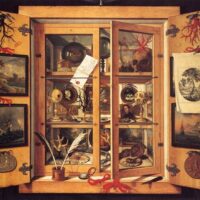000
100
%
Ideas

Présentation
This area of research is part of a historiographical evolution that has taken place in recent decades, partly in reaction to a history of science more often produced by philosophers, epistemologists or specialists in the natural sciences, which based its work on a contemporary understanding of the legitimate criteria for the production of knowledge. The practice, which has become widespread, of replacing the notion of ‘science’ with that of ‘ideas’, or of combining the two, is not intended to exclude the so-called ‘hard’ sciences or natural sciences from its field of study, but to reintegrate them into a broader understanding of the ways in which knowledge is produced, emphasising the constant exchange between established disciplines and between knowledge and know-how. The history of ideas considers that the production, validation, and transmission of ideas are social processes. It is interested in the actors, the dynamics, and the spaces of ideas. At the crossroads of cultural and social approaches, this history enables us to understand knowledge not in the positivist sense of a truth that is gradually discovered, but as the expression of a relationship with the world at a given time and in a given environment.
This area is concerned with the diversity of theoretical and abstract ideas; practical, technical, administrative and academic wisdom, as well as professional expertise, in all its historical dimensions.
Thématique 1
Knowledge Transmission
Education and the transmission of ideas occupy a central place in the history of ideas. These subjects are concerned with both the nature of ideas and their social functions, since the transmission of ideas often engenders their transformation and the ideas transmitted also affect the construction of social and professional identities. The history of education encompasses the history of official educational institutions as well as manual apprenticeships, practical expertise, and the transmission of knowledge in workshops, stalls, factories, and other settings, thereby enabling us to question hierarchies of knowledge and disciplines. It is sensitive to the multiplicity of purposes, target audiences, and types of knowledge.
This theme is broken down into four sub-themes:
the education and formation of elites,
the relationship between gender and vocational education,
the formation and functioning of academic and learned geographies,
and the question of how knowledge is transmitted.
Thématique 2
Ideas, Knowledge, and Belief
The aim here is to study the complex links between knowledge and beliefs, in their sometimes competing claims to truth. The history of the production of ideas is inseparable from that of their legitimacy and legitimation. Approaches that present themselves as scientific are not devoid of beliefs. Convictions and more or less rational opinions that suspend doubt in favour of personal or collective certainty sometimes play a central role in other fields, such as the production of information, which in some respects is also knowledge. We therefore need to go beyond divisions between knowledge and faith, reason and religion, rationality and superstition. With this in mind, we can study knowledge as belief or study the way in which ignorance as a category is constructed to obscure or delegitimise certain ideas.
This theme is divided into three sub-themes:
the relationship between ideas and religion,
the issues of hierarchies between disciplines and of the boundaries between science, knowledge and beliefs,
and the questions of time with regard to knowledge and vice-versa.
Thématique 3
Knowledge and Power
Situating forms of knowledge production in their social context entails an examination of their relationship to local, urban, or state powers, and more broadly of the spheres of domination at work in societies. While the exercise of power requires the command and production of knowledge, this knowledge can also serve to delegitimise such power. It is also subject to variations and transformations, according to the period and environment in question.
This theme is divided into two sub-themes:
knowledge in public policy and government
and the relationships between gender and knowledge.
